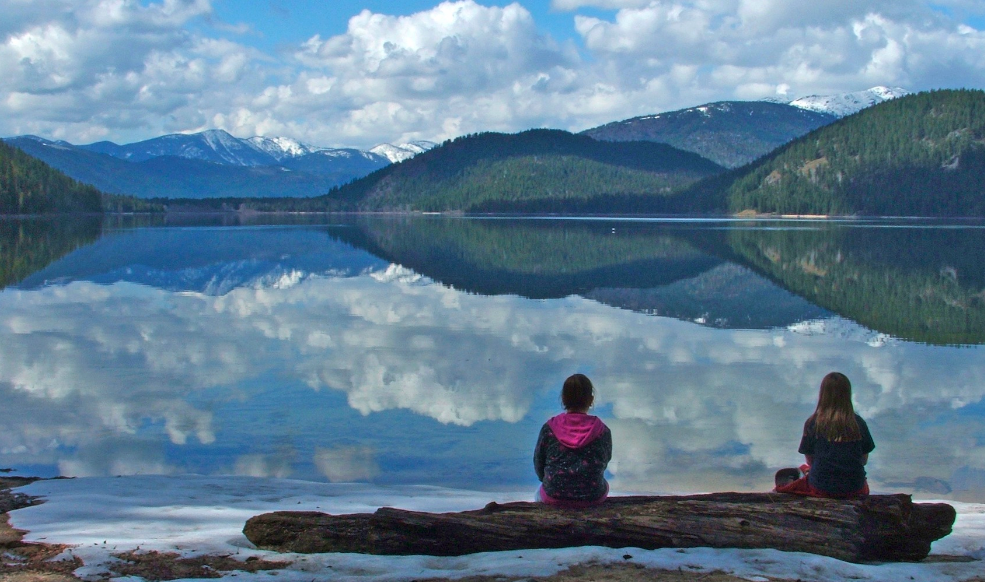By Glynn Wilson –
WASHINGTON, D.C. — In another disastrous ruling destroying decades of established legal precedents, the conservative majority on the United States Supreme Court on Thursday ruled in favor of Idaho farmers and against the Environmental Protection Agency in a case involving the protection of wetlands near waterways.
In response to the decision in Sackett v. Environmental Protection Agency, EPA Administrator Michael S. Regan issued a statement expressing his disappointment with the ruling that he said “erodes longstanding clean water protections.”
“As a public health agency, EPA is committed to ensuring that all people, regardless of race, the money in their pocket, or community they live in, have access to clean, safe water,” Regan said. “We will never waver from that responsibility.”
The Biden administration worked to establish a durable definition of ‘waters of the United States’ that safeguards the nation’s waters, strengthens economic opportunity and protects people’s health while providing the clarity and certainty that farmers, ranchers and landowners deserve, he said.
“These goals will continue to guide the agency forward as we carefully review the Supreme Court decision and consider next steps,” he added.
In 1972, an overwhelming bipartisan majority in Congress passed the Clean Water Act, giving EPA and Army Corp implementation responsibilities. Leaders on both sides of the political aisle recognized that protecting the nation’s waters is vital to ensuring a thriving economy and agricultural sector, to sustaining diverse ecosystems and to protecting drinking water.
“Over the past 50 years, we have made transformational progress,” Regan said. “Rivers that were once on fire have been restored and now sustain vibrant communities in every corner of the country. A common sense and science-based definition of ‘waters of the United States’ is essential to building on that progress and fulfilling our responsibility to preserve our nation’s waters — now and for future generations.”
But this court held that law only covers wetlands “with a continuous surface connection” to the waters in question, based on a line written by Justice Samuel Alito for the five justices voting in the majority.
Justices agreed that the homeowners who brought the case should not have been subject to the agency’s oversight, but there was sharp disagreement about the majority’s reasoning.
Justice Brett M. Kavanaugh, joined by the three liberal justices in a concurring opinion, said the decision would harm the EPA’s ability to combat pollution.
“By narrowing the act’s coverage of wetlands to only adjoining wetlands, the court’s new test will leave some long-regulated adjacent wetlands no longer covered by the Clean Water Act, with significant repercussions for water quality and flood control throughout the United States,” he wrote.
The decision followed a ruling last year that limited the EPA’s power to address climate change under the Clean Air Act.
“There,” Justice Elena Kagan wrote in a second concurring opinion, “the majority’s non-textualism barred the EPA from addressing climate change by curbing power plant emissions in the most effective way. Here, that method prevents the EPA from keeping our country’s waters clean by regulating adjacent wetlands. The vice in both instances is the same: the court’s appointment of itself as the national decision maker on environmental policy.”
The case concerned an Idaho couple, Michael and Chantell Sackett, who sought to build a house on what an appeals court called “a soggy residential lot” near Priest Lake, in the state’s panhandle.
After the couple started preparing the property for construction in 2007 by adding sand gravel and fill, the agency ordered them to stop and return the property to its original state, threatening them with substantial fines. The couple instead sued the agency, and a dispute about whether that lawsuit was premature reached the Supreme Court in an earlier appeal. In 2012, the justices ruled that the suit could proceed.
In a concurring opinion at the time, Justice Alito said the law gave the agency too much power.
“The reach of the Clean Water Act is notoriously unclear,” he wrote. “Any piece of land that is wet at least part of the year is in danger of being classified by EPA employees as wetlands covered by the act, and according to the federal government, if property owners begin to construct a home on a lot that the agency thinks possesses the requisite wetness, the property owners are at the agency’s mercy.”
The Clean Water Act allows the regulation of discharges into what the law calls “waters of the United States.” The question for the justices was how to determine which wetlands qualify as such waters.
Lower courts ruled that the Sacketts’ property was a wetland that the agency could regulate, concluding that it qualified under a 2006 Supreme Court decision, Rapanos v. United States, which featured competing tests for deciding that question.
Justice Antonin Scalia, who died in 2016, wrote for four justices in the Rapanos decision that only wetlands with “a continuous surface connection” to “relatively permanent, standing or flowing bodies of water” qualify. That standard appeared to favor the Sacketts.
Justice Anthony M. Kennedy, who retired in 2018, said in a concurring opinion that the law required only a “significant nexus” between the wetlands at issue and bodies of waters.
A unanimous three-judge panel of the U.S. Court of Appeals for the Ninth Circuit ruled that Justice Kennedy’s opinion was the controlling one.
The agency, Judge Michelle T. Friedland wrote for the panel, “reasonably determined that the Sacketts’ property contains wetlands that share a significant nexus with Priest Lake.”
This Supreme Court disagreed.
See the ruling for yourself.
This ruling was first reported by The New York Times on deadline.
Further analysis was provided by The Washington Post.
Some environmental groups and legal experts estimate that the decision will remove federal protection from half of all wetlands in the continental United States. According to estimates from Earthjustice, an environmental law firm, the decision will prevent the EPA from placing federal protections on as many as 118 million acres of wetlands, an area larger than the landmass of California. The ruling is expected to give farmers, home builders and other developers far more latitude to disturb lands previously regulated under the Clean Water Act.
Environmentalists said wetlands in such places as the Everglades and Indiana Dunes national parks would lose protections. In his opinion, Kavanaugh highlighted major water bodies such as the Chesapeake Bay and the Mississippi River, for which he said the court’s new interpretation could have real-world consequences.
“In particular, the Court’s new and overly narrow test may leave long-regulated and long accepted-to-be-regulable wetlands suddenly beyond the scope of the agencies’ regulatory authority, with negative consequences for waters of the United States,” he wrote. “For example, the Mississippi River features an extensive levee system to prevent flooding. Under the Court’s ‘continuous surface connection’ test, the presence of those levees (the equivalent of a dike) would seemingly preclude Clean Water Act coverage of adjacent wetlands on the other side of the levees, even though the adjacent wetlands are often an important part of the flood-control project.”
Some environmentalists and legal experts say it could limit the EPA from acting on many modern problems, especially climate change, or doing anything that might expand the authority of a federal agency beyond previous limits. They point to language from Alito requiring Congress to “enact exceedingly clear language” on rules that may affect private property. They further point to trends in the court’s rulings and the cases it is agreeing to take that suggest the conservative-majority court is skeptical of the executive branch’s regulatory power.
“No environmental rule is safe in the wake of this decision,” said Patrick Parenteau, an environmental law expert at Vermont Law School.
___
If you support truth in reporting with no paywall, and fearless writing with no popup ads or sponsored content, consider making a contribution today with GoFundMe or Patreon or PayPal. We just tell it like it is, no sensational clickbait or pretentious BS.















